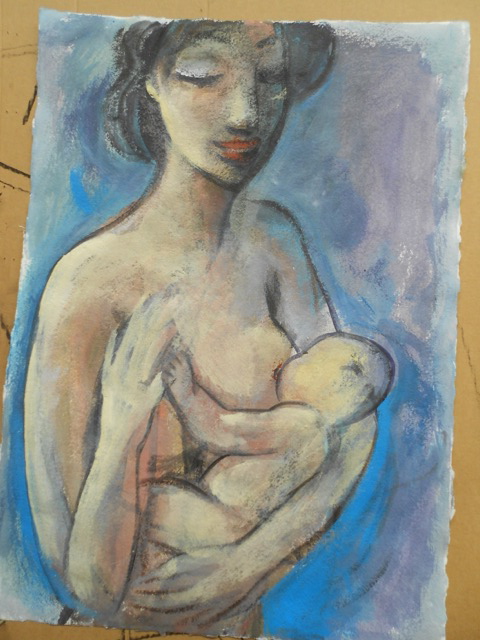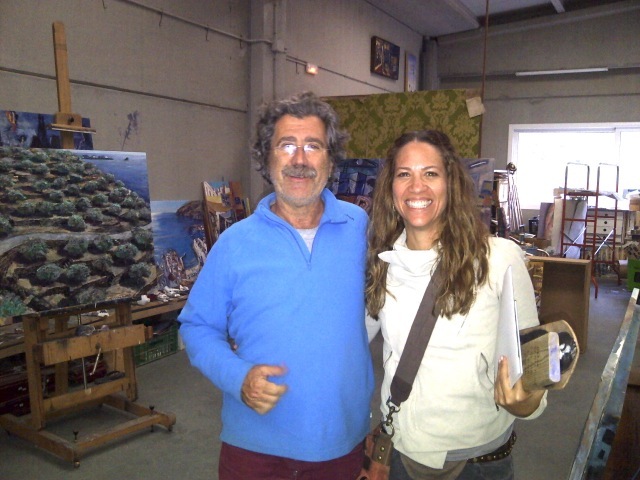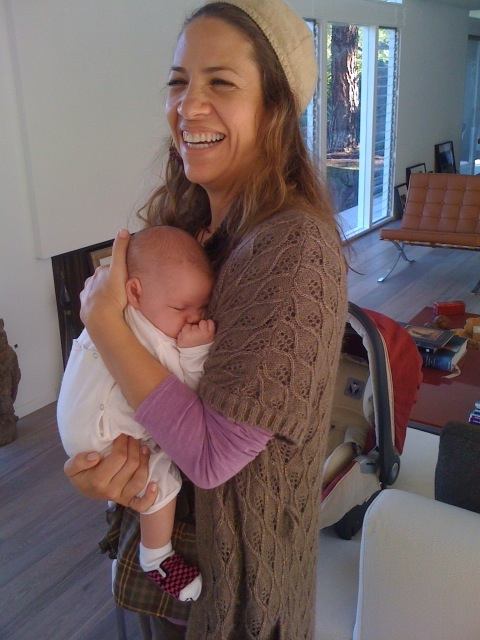News
-
Breastfeeding Art
-
Newborns Do Amazing Things
-
Breastfeeding for Dad
-
Better Health Outcomes
-
Coping With Night Feedings
- During the day pledge to sleep when baby sleeps
- Know that this is normal and this too shall pass. Baby’s are supposed to wake up!
- You have breastfeeding twice just keep: Laidback Breastfeeding
- Lying down safely, will help you tremendously
- Your partner or support person can give you extra help at night
- Get into bed at your usual time with the baby close to you in a safe co-sleeping arrangement, close to you, so that you or your support person can help assist you with night feeds
- Don’t worry so much about burping if she is not uncomfortable, or changing diapers unless baby has bowel movements
-
Your Early Milk
-
Breastfeeding is a Right-Brained Actvity
-
For Mommy Too
- AAP Pediatrics 2012;129:e827-841
- Ip S et al: Breastfeeding and Maternal and Infant Health Outcomes in Developed Countries, April 2007. Agency for Healthcare Research and Quality, Rockville, MD.
- http://www.ahrq.gov/clinic/tp/brfouttp.htm
Newborns are outstanding. Dr. Suzanne Colson a British Midwife and researcher gathered data and video taped mothers and babies during the first month post partum and studied the babies movements. She discovered that many of the reflexes that babies are born with play a key role in breastfeeding. For example the stepping reflex, which occurs when babies feet brush against a firm surface, we thought that it was unnecessary, but she discovered that the baby uses this reflex to push to the breast. So like the stepping reflex she identified 20 primitive newborn reflexes all of which help the baby breastfeed. Some reflexes help baby find the breast, others help baby attach to the breast and get milk from the breast.
The key into triggering these reflexes is the feel of the mothers body against the front of the baby’s chin , torso hip, and feet. So research shows that if the mother lays back comfortably in a semi reclined position, like you would if you are sitting in a couch to watch a movie, and her newborn is placed prone on her chest breastfeeding goes more smoothly since with the help of gravity baby achieves positional stability on top of mothers body and all feeding instincts are triggered that eventually lead to attachment.
Colson, S . D., J. H. Meek and J. M. Hawdon. 2008. Optimal Positions for the release of primitive neonatal reflexes stimulating breastfeeding. Early Human Development 84: 441-9
I’ve found an excellent site for dads to better understand the benefits of breastfeeding. It’s filled with tons of an interesting – and funny! – videos to help dad through. Check it out: http://www.newdadmanual.ca/
Babies deprived of human milk’s living antibodies get sick more often and that is not only in underdeveloped countries. In 2004 Pediatrics reported that 21 percent of US infants deaths between one month and one year could be prevented if all US babies did any amount of breastfeeding.
Researchers have found that during the first year of life babies fed nonhuman milks are have higher incidence of Illnesses: Respiratory, diarrhea, ear infections, Urinary Tract Infection, Meningitis and Sudden Infant Death syndrome.
AAP in 2012 has just has re-affirmed its conclusion that breastfeeding and the use of human milk has unique nutritional and non-nutritional benefits for infants and the mother.
Human milk is the normative standard for infant feeding and nutrition
Breastfeeding should be considered a public health issue and not a lifestyle choice
AAP recommends exclusive breastfeeding for about 6 months with continuation for 1 year or longer as mutually desired by mother and infant/ Some infants because of family medical history, individual developmental status complimentary feedings begins earlier than 6 months.
For more information click this link: http://pediatrics.aappublications.org/content/129/3/e827.full.pdf+html?sid=ad6f052f-6bdb-46d7-bf71-a0d52e20298e
For more information visit this link: http://cosleeping.nd.edu/safe-co-sleeping-guidelines/
Colostrum, or your early milk, is full of immune factors that are especially important during a baby’s first weeks. Immune factors in both colostrum and mature milk bind microbes and prevents them from entering the babies delicate tissues.
A baby’s gut is sterile and immature at birth and needs help in order to create the right environment for digestion and normal development. Colostrum encourages the growth of good bacteria, which is responsible for the mild order of babies food. A normal gut discourages the growth of harmful bacteria and helps babies’ immune systems develop properly. In other words, colostrum helps seal a baby’s gut and prevents harmful bacteria from penetrating.
Furthermore, the junctions between the cells in your baby’s gut are much more open at birth and remain open until a few weeks later, which makes proper early nourishment vital . The characteristics in your breastmilk helps your baby’s gut to mature quickly, as well as the intestine mucous lining to grow and develop and strengthen your babies intestinal barrier.
It’s important to note that all mammalian species need colostrum. For instance, dairy farmers know that a calf deprived of colostrum is a calf in trouble. They go out of their way to make sure that calves get their colostrum. In the case of humans, even though a baby can survive without colostrum, the quality of life suffers. Human milk is what your baby needs and expects at birth.
Breastfeeding has to do much with the side of your brain that has to do with affection and feelings, that is your right side and less with the analytical part, or the left part of your brain. The left part of the brain has to do with instructions and knowledge and the right has to do with the emotions, creativity and body knowledge. After labor, intentionally, your brain will be more on your right side to take advantages of the natural mother and baby interaction. So if we give a new mom a list of “instructions” to absorb at this moment, where she has to use her left side of the brain it becomes overwhelming and she might just start doubting her natural urges to care for her baby. So if we can approach breastfeeding as a right brained activity then it might become more natural to you.
Source:
Schore 2001 The effects on a secure attachment relationship on right brain development, affect regulation and infant health. Infant mental Health Journal, 22 7-66
Smillie 2008 How infants learn to feed. A neurobehavioral model.
Breastfeeding is the biological norm for you too!
Breastfeeding your baby is the best way for mom and baby to transition from the womb to the world in many physical and emotional aspects. After birth breastfeeding provides a gradual post partum hormonal shift that can make transition to motherhood more gradual and soother. Suckling at breast will release the hormone oxytocin which relaxes baby and is part of the physical closeness of breastfeeding or nature’s plan to create and strong mother-baby relationship.There is a dose dependent relationship between the maternal benefits of breastfeeding and its length and duration. Mothers who breastfeed are at decreased risk of excessive or prolonged bleeding postpartum. Uterus shrinks more rapidly. Mothers who breastfeed also experience decreased risk of developing ovarian cancer and have a lower incidence of breast cancer. So, all-in-all, breastfeeding is not only healthy for your baby, but also for you.
References:




